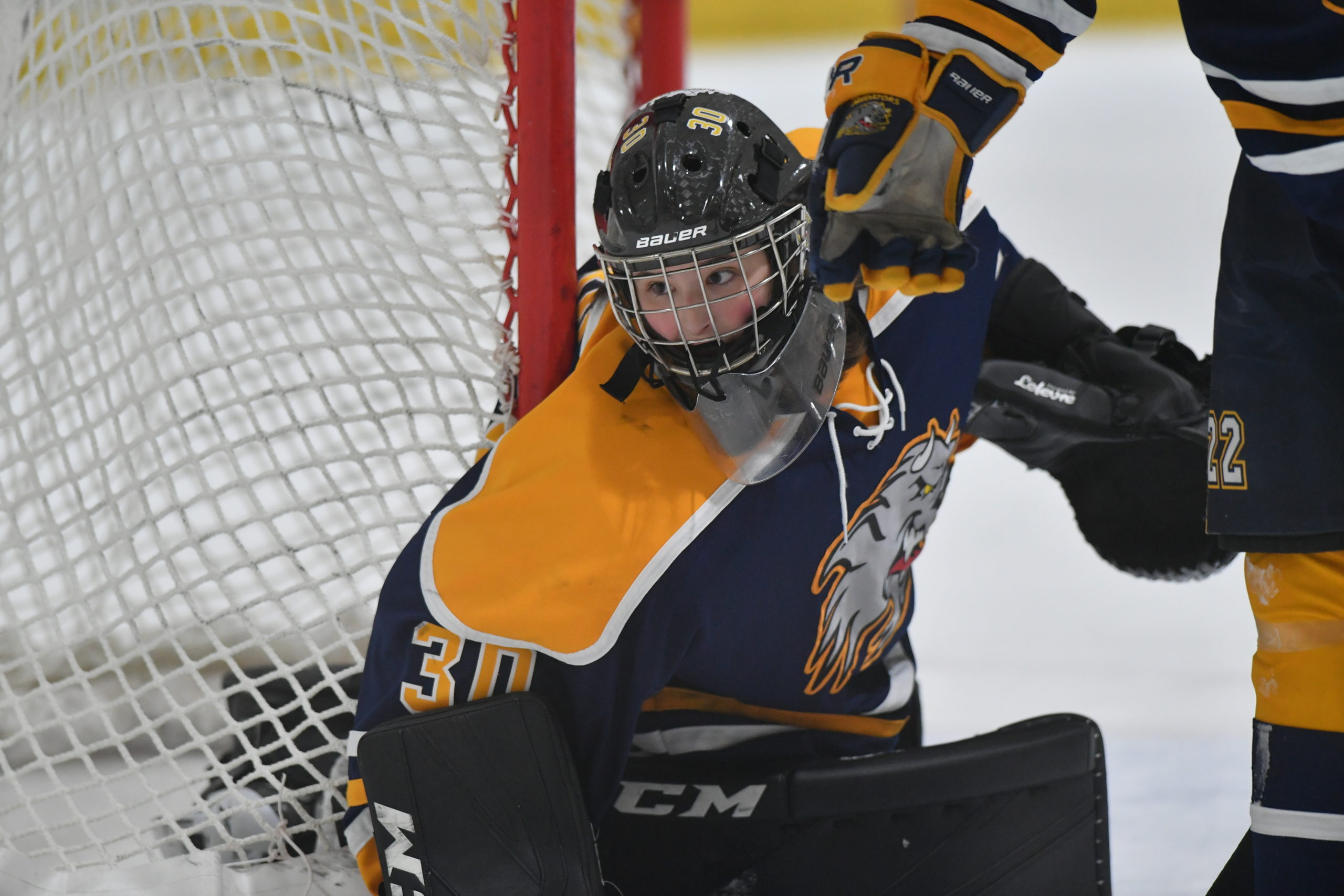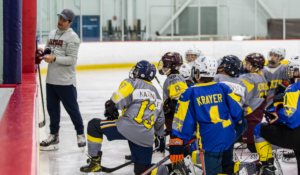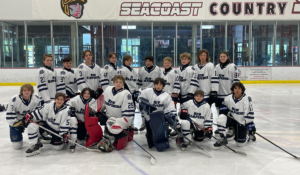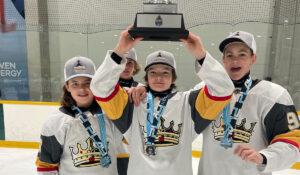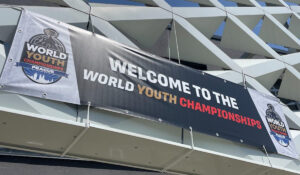Five Keys To A Mental Recovery Plan
One of the most demanding positions in any sport is playing goalie. All eyes are on them. They can’t hide from a mistake or a misstep. When the game is over the goalie is analyzed by everyone including their own coach, teammates, parents of the team, the opposing team and coaches, and even themselves.
The position often receives the most credit for a team win, but at the same time receives the most criticism following a loss. The most elite goalies not only require physical strength but mental and emotional strength as well.
An invaluable asset to goalies is to have a mental recovery plan. One that works following a loss, but also can be used right after a bad goal.
Goalies have, on average, less than a minute to get ready and set for the next play. That means if the goalie is thinking about the past mistake, what they should have done better, complaining about the ref, or worrying about their teammates, their mind is not where it needs to be.
If your mindset is not focused on the present play, your performance suffers.
5 Keys to a Mental Recovery Plan
Self-talk
A great question I like to ask athletes I work with is, “Who is the person you listen to the most?” Often, answers include parents, coaches, teammates, or teachers. Many people tend to forget that saying “myself” is an option.
The person you listen to most is yourself. Your internal narrative or self-talk consists of the thoughts and dialogue in your mind that you have all day long. This occurs automatically and we may not even pay attention to messages we send ourselves daily.
When goalies are in the crease, they need to be intentional about the messages they have on repeat. Their self-talk is critical for top performance.
If your self-talk is negative, overly critical and harsh, you are not helping yourself. You need to support yourself through positive self-talk. You don’t have to lie and tell yourself everything is great. But you need to be intentional about helping yourself perform better.
Cue yourself with instruction; “see the puck,” “play strong,” and “quick feet.” These phrases help you stay on task. You can also use motivational self-talk; “trust yourself,” “I got this,” “I’m ready,” or “I trained for this.”
Have 3 to 5 self-talk phrases that help keep you ready, positive and focused. Don’t help your opponents out by beating yourself. Create your top performance through great self-talk.
Body Language
The best way to let your opponent know they’ve gotten the best of you is through body language. Many athletes don’t recognize the importance of body language.
Picture your opponent throwing their head back, then putting their hands up as if to blame their teammates for a bad play. Or if your opponent bends over, slams and breaks their stick, and skates slowly to the bench. Or imagine the players who have their head down on the bench and no one’s communicating with each other. Those players have already lost. They have been mentally beaten. They have checked out and their mindset is not in a place for their top performance.
As a goalie, you cannot let the opponent take up space in your mind. Be intentional about your body language. Imagine 5 things a goalie with good body language does.
Could you do all those things in practice and in games? Don’t allow your body language to be something that just happens. Practice it. Do not allow your body language to give anything away for free.
Positive body language for goalies includes keeping your head up, eyes on the play, standing tall in between plays and communicating effectively with teammates. Work to avoid blaming teammates, slamming your stick, throwing your head back or hanging your head, bending over in disappointment or getting in the referee’s face.
Imagery/Visualization
Goalies need to use their mind to their advantage. It’s great to keep the positivity up through self-talk and body language but these skills bring you back to your baseline performance. Imagery and visualization take your performance to the next level.
You cannot outperform your self-image. That means if you don’t see yourself making incredible saves, showing up big in the third period or shutting down the opponent’s power play, your chances of doing so greatly diminish.
Imagery involves all the senses — seeing, feeling, hearing, movement, smelling, taste — to recreate positive plays in the mind’s eye. The mind is so powerful that simply imagining great plays and good techniques solidify those brain-thinking patterns leading to quicker reaction times, increased performance and improved self-confidence.
Create a self-image of an elite goalie. See yourself succeeding and making the clutch plays.
Re-Focus Cues
It’s easy to get stuck in the last play. Our minds want to analyze the past and make corrections for the future. But there is not time to go through that thinking process during a game. This activity is better saved for after the game.
Instead, you need to forget the last play and re-focus on the immediate task. This is easier said than done, it’s a skill that requires practice.
With intentional attention shifting, you can get yourself back into the present by focusing on exactly what is right in front of you.
One of my favorite re-focus cues from a collegiate goalie I’ve worked with is, “Next Shot. Next Save.” This four-word phrase moves the attention to the next play. The past play doesn’t matter anymore, I need to focus on my next save.
Another goalie reset focus through a physical routine of tapping the goal post with their stick, adjusting their pads and getting back into their ready stance. Doing this routine intentionally helps them reset their mind and body.
Relaxation
The paradox of being a goalie is that you must be alert while at the same time relaxed.
If you become too anxious, you may play ahead of yourself. Getting yourself out of proper position, cheating on your corners or playing too far off the crease.
If you contract your muscles too tightly, you lose reaction time, your movements lose their flow and you get tired much more quickly.
If your mind is not relaxed, tunnel vision occurs and you may not be able to see the entire ice as you should. You may start overthinking about the last couple of plays and losing present focus.
The best performances for goalies requires the right amount of energy.
I’m not saying you should be falling asleep out there; that’s too far in the other direction. You need to find the right energy level for you. Some of your teammates require their energy to be at 10, headbutting one another, jumping up and down, and hyping themselves up. Others require a lower energy level of 3 or 4, listening to music and being calm but ready.
Think of your best performance, what was your energy level at on a scale of 1 to 10. It’s important to work to recreate that exact energy level. Many professional goalies tend to have a lower energy level where they are intensely focused, in the zone and ready for anything.
If your energy level gets too high, which is often the case, you need to be able to relax the body and the mind. Through squared breathing you can calm the mind and the body. This technique requires four-second inhale, four-second hold, four-second exhale, four-second hold and then repeat. This short breathing exercise can be done in between plays, after a goal or during the period break.
Also combine your self-talk and re-focus cues to bring your energy level to where it needs to be. These techniques do not have to occur in isolation and help improve your recovery plan while used together.
Final Thoughts
Having a planned recovery plan will set you apart from your competition. Some of the best goalies in the NHL credit their success to sports psychology skills. Those goalies include Braden Holtby and Carter Hart.
Create your personal recovery plan using the suggestions above. As a goalie you need to be able to shake off the last play. Good or bad, it’s in the past. The most important play is the next one.
By Blaise Fayolle, EdD, CMPC, LLPC
Blaise Fayolle holds a doctorate in Sport and Performance Psychology and is credentialed as a Certified Mental Performance Consultant® through the Associated for Applied Sport Psychology. Blaise is also a licensed mental health professional in Michigan.
